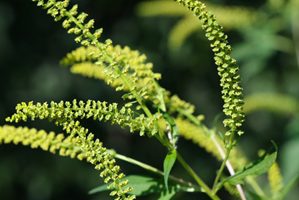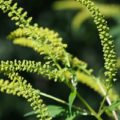
By now we can stop talk about allergies, right? After all, spring is over and summer will be drawing to a close sooner than you can say "autumn." By this point, you should be counting down the hours until you can finally breathe a sigh of relief.
Not so fast.
"Although spring, summer and fall have different sets of allergens to trip up allergy and asthma sufferers, they can cause the same symptoms," said allergist Janna Tuck, MD, fellow of the American College of Allergy, Asthma and Immunology.
Before you store your allergy relief medicine into the back of your closet, you need to remember one thing: ragweed, one of the nation's worst allergens, comes out to play in the fall.The weed affects nearly 10 to 20 percent of Americans and can cause the same symptoms as spring and summer allergies.
Ragweed usually begins to release pollen as the nights cool and days grow warmer in August. It then relentlessly assaults allergy sufferers until October before winding down for the season.
It's also difficult, if not near impossible to escape the allergen. You simply can't load your bags into your car and drive away from it. Ragweed is one of the most common allergens in the eastern and Midwestern states and can travel great distances. In fact, according to the Asthma and Allergy Foundation of America, ragweed has been found 400 miles out to sea and 2 miles into our atmosphere.
To find allergy solutions, visit Allergy Be Gone's store for a wide range of allergy control products.









